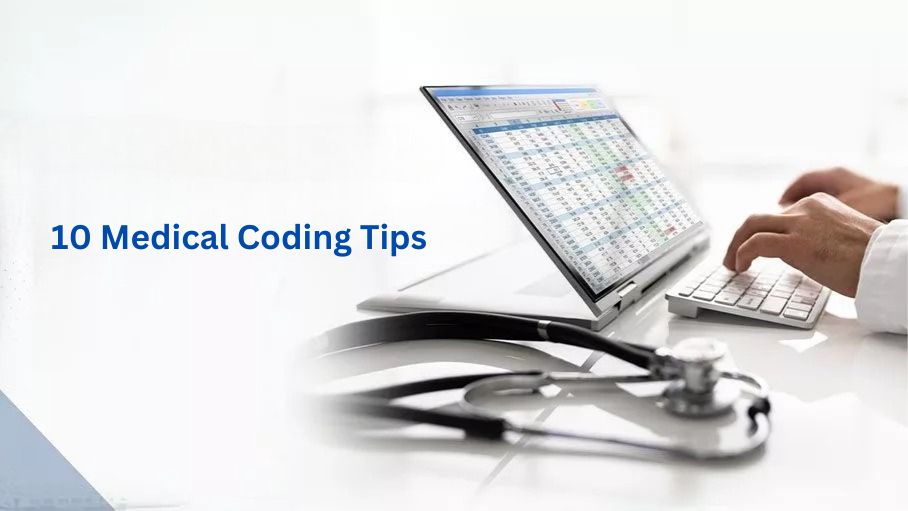Medical coding involves assigning specific codes to each medical procedure, diagnosis, and service. These codes are derived from standardized coding systems such as the International Classification of Diseases (ICD) and the Current Procedural Terminology (CPT) manuals. By accurately coding medical information, healthcare professionals enable streamlined communication between healthcare providers, insurance companies, and government agencies.
Importance of Medical Coding
Accurate and detailed medical coding is essential for several reasons. Firstly, it ensures that healthcare providers receive proper reimbursement for the services rendered. Insurance companies rely on these codes to determine the level of coverage and reimbursement rates. Secondly, medical coding facilitates medical research, data analysis, and public health initiatives by providing standardized information. Moreover, coding is crucial for maintaining legal and regulatory compliance within the healthcare industry.
Essential Medical Coding Tips
To ensure accurate and effective medical coding, healthcare professionals should adhere to the following essential tips:
1 Stay Updated with Coding Guidelines
Coding guidelines are regularly updated to reflect changes in medical practices and technologies. It is crucial for medical coders to stay informed about the latest coding guidelines, conventions, and updates released by relevant organizations such as the Centers for Medicare and Medicaid Services (CMS) and the American Medical Association (AMA).
2 Code to the Highest Level of Specificity
Coding to the highest level of specificity is crucial for accurate billing and reimbursement. Medical coders should be thorough in documenting diagnoses and procedures, providing sufficient details to support the assigned codes. Including specific details such as laterality, severity, and complications can significantly impact the coding accuracy.
3 Ensure Proper Documentation
Accurate medical coding heavily relies on comprehensive and precise documentation. Healthcare professionals should ensure that medical records contain all relevant details, including the patient’s medical history, diagnoses, treatments, and procedures performed. Proper documentation not only supports coding accuracy but also assists in clinical decision-making and continuity of care.
4 Use Modifiers Correctly
Modifiers are additional codes used to provide additional information about a service or procedure. It is crucial to use modifiers correctly to avoid coding errors and denials. Medical coders should understand the purpose and appropriate usage of modifiers according to the coding guidelines and payer requirements.
5 Understand Bundled Services and Unbundling
Bundled services refer to procedures or services that are typically performed together and are billed as a single unit. Unbundling, on the other hand, involves separately coding components of a bundled service, potentially leading to billing fraud or coding errors. Healthcare professionals must understand the concept of bundled services and unbundling to ensure compliant and accurate coding.
6 Familiarize Yourself with Local Coverage Determinations (LCDs) and National Coverage Determinations (NCDs)
LCDs and NCDs are guidelines created by Medicare to determine coverage and reimbursement policies for specific services or procedures. Healthcare professionals should be familiar with these guidelines to ensure proper coding, documentation, and reimbursement when dealing with Medicare patients.
7 Stay Informed about Current Procedural Terminology (CPT) Changes
The CPT manual is regularly updated with new codes and revisions. Medical coders must stay updated with these changes to accurately code procedures and services. Familiarizing oneself with CPT changes ensures compliance with industry standards and improves coding accuracy.
8 Follow Correct Coding Initiative (CCI) Edits
CCI is a system that identifies pairs of codes that should not be reported together unless specific circumstances justify the billing of both. Medical coders should be aware of CCI edits to avoid coding and billing errors and ensure proper reimbursement.
9 Verify Medical Necessity
Medical coders should verify the medical necessity of procedures and services before assigning codes. Ensuring medical necessity helps prevent denials and audits. It is important to document the reasons for performing a particular procedure or service to support medical necessity.
10 Understand the Impact of Compliance Audits
Compliance audits play a crucial role in identifying coding errors, billing irregularities, and fraudulent activities. Healthcare professionals should understand the implications of compliance audits and ensure their coding practices comply with regulatory requirements and guidelines.
Benefits of Proper Medical Coding
Proper medical coding offers several benefits to both healthcare professionals and patients. Accurate coding enhances communication and coordination among healthcare providers, facilitates prompt and accurate reimbursement, supports medical research and public health initiatives, and ensures compliance with legal and regulatory standards.
Challenges in Medical Coding
Medical coding can present various challenges, including frequent updates to coding guidelines, complex documentation requirements, and the need for continuous learning and adaptation to evolving coding practices. Healthcare professionals involved in medical coding should actively seek ongoing education and training to stay updated and overcome these challenges.
Conclusion
Accurate medical coding is crucial for the healthcare industry, ensuring efficient billing processes, proper reimbursement, and reliable data analysis. By following essential medical coding tips and staying updated with coding guidelines, healthcare professionals can enhance coding accuracy, minimize coding errors, and contribute to improved patient care and revenue optimization.

